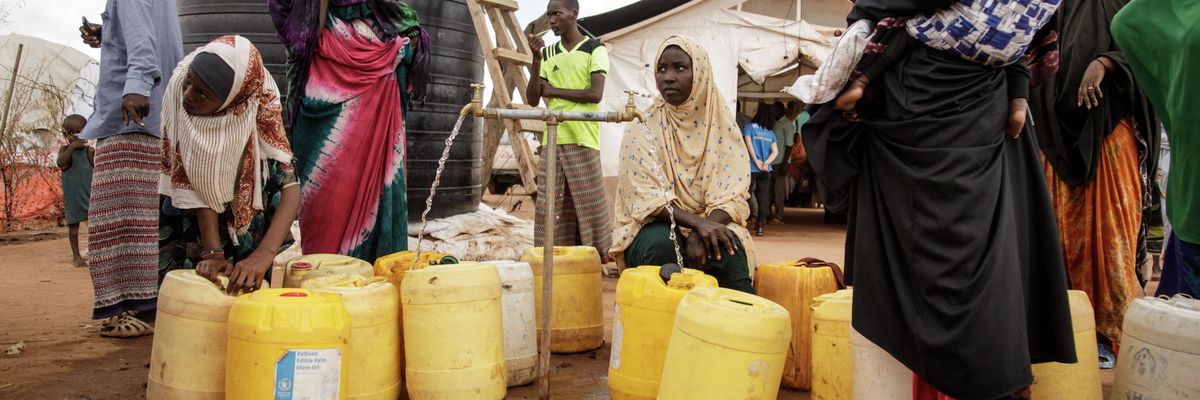A report published Wednesday by the World Resources Institute estimates that roughly two billion people around the world face "extremely high water stress" each year as the climate crisis fuels worsening drought conditions.
WRI's analysis of data from its Aqueduct Water Risk Atlas shows that 25 nations that are home to a quarter of the global population experience severely inadequate water supply annually. Half of the world's population lives under highly water-stressed conditions for at least one month per year, the analysis notes.
"Living with this level of water stress jeopardizes people’s lives, jobs, food, and energy security," wrote Samantha Kuzma, Liz Saccoccia, and Marlena Chertock, the authors of the new report. "Water is central to growing crops and raising livestock, producing electricity, maintaining human health, fostering equitable societies, and meeting the world's climate goals."
The regions facing the most severe water stress each year are North Africa and the Middle East—83% of the population in those regions are exposed to extreme water stress, according to WRI.
The organization categorizes a country as under extreme water stress if it utilizes at least 80% of its available supply each year.
"Even a short-term drought puts these places in danger of running out of water and sometimes prompts governments to shut off the taps," the new report observes. "We've already seen this scenario play out in many places around the world, such as England, India, Iran, Mexico, and South Africa. The five most water-stressed countries are Bahrain, Cyprus, Kuwait, Lebanon, Oman, and Qatar. The water stress in these countries is mostly driven by low supply, paired with demand from domestic, agricultural, and industrial use."
Extreme drought has ravaged nations in the Middle East and Africa in recent years as global temperatures have surged, driven up by record greenhouse gas emissions stemming primarily from fossil fuels.
Research released earlier this year by World Weather Attribution suggests catastrophic drought in the Horn of Africa was made around 100 times more likely by the fossil fuel-driven climate crisis.
WRI suggests a number of steps nations and international development institutions can take to improve water management, from protecting and restoring wetlands to providing debt relief for poor countries struggling to afford improvements to water infrastructure.
But the report stresses that "every level of government, as well as communities and businesses, must step up to build a water-secure future for all."
"The world will ultimately require an all-of-the-above approach, as well as solutions specific to individual catchments and regions," the report adds. "These findings may be daunting, but with the right management, every country can prevent water stress from turning into water crisis."
